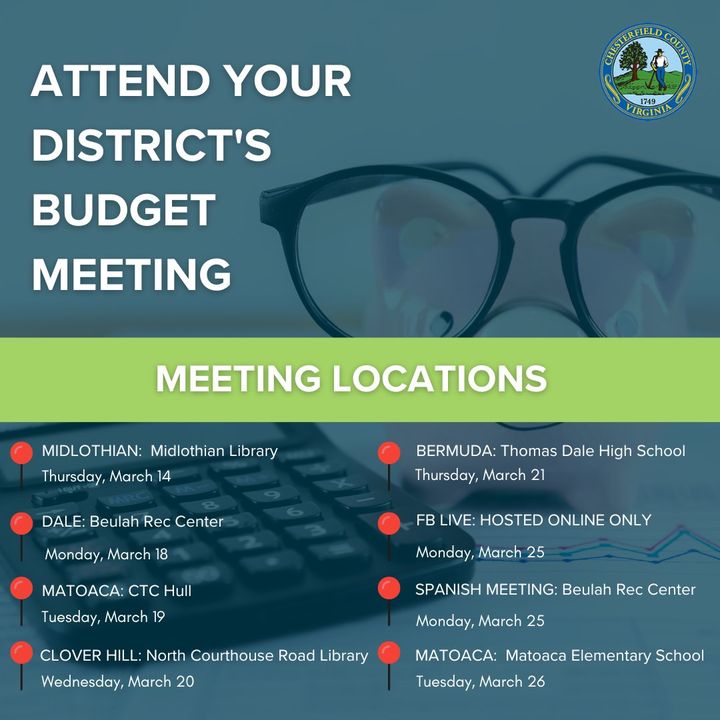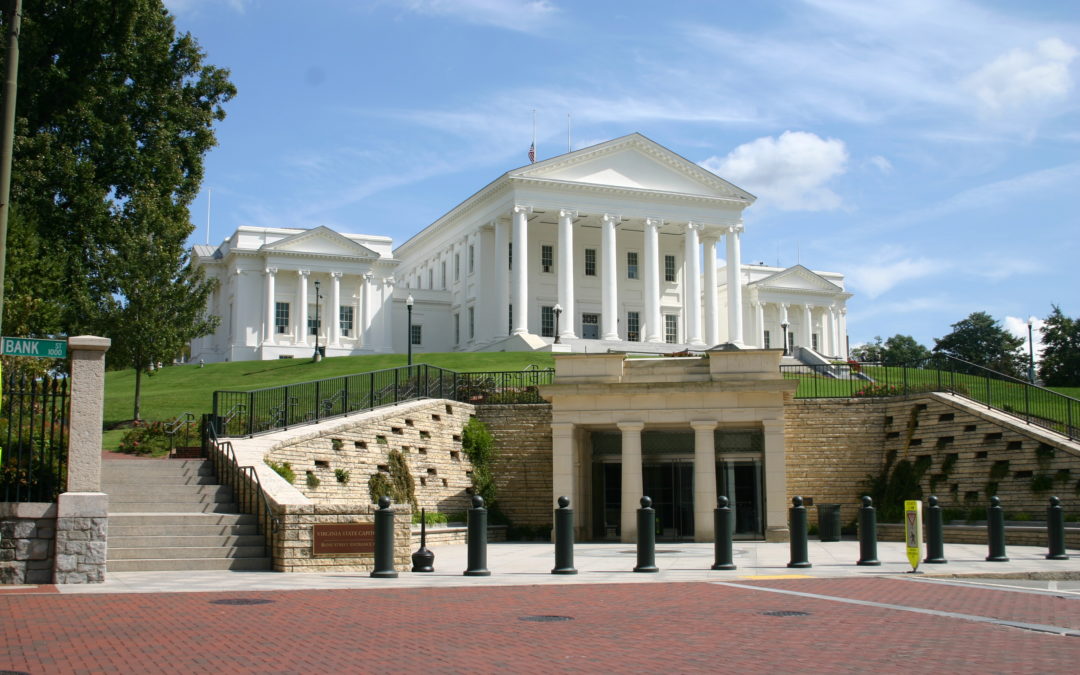The General Assembly has officially finished its 60-day legislative session having adjourned sine die on Saturday, March 9th.
Through the course of the session, the legislature passed 1,046 bills. The Governor has already signed 64 bills into law and vetoed 8 bills. He and his administration will spend the next several weeks reviewing each bill. The Constitution of Virginia empowers the Governor to sign a bill outright, veto a bill outright, or propose amendments to a bill. Any amendments must come back to the General Assembly for an additional vote before they can become law.
The deadline for the Governor to act on bills is April 8th. The House and Senate will reconvene on Tuesday, April 17th for our constitutionally-mandated reconvene session where we can override a veto and consider amendments to bills proposed by the Governor.
In this update, I have included information on several of the larger items considered during the session’s final week and an update on the state budget.
Legislation Update
The final week of session consisted largely of ironing out differences between House and Senate proposals for different issues. Below I’ve highlighted several of the key issues that my office heard from constituents in this past session.
Alexandria Stadium
One of the most-discussed proposals this legislative session was a professional sports stadium in Alexandria. Governor Youngkin announced this proposal in December 2023 as a project that would have a $12 billion economic impact on our state and create over 30,000 new jobs.
This proposal was different from many other stadium deals seen across the country in that Virginia would build and own the stadium rather than provide large amounts of tax breaks/incentives to a millionaire owner. Construction of the stadium would be financed by bonds, and the investment recouped through the lease and other fees. At the end of the lease agreement, Virginia would still own the stadium and could extend the lease or redevelop the site. I was open to the Governor’s proposal due to the limited financial risk to the state, but certainly was hoping to learn more about the specifics before making a final decision one way or the other.
Ultimately, the proposal passed the House but did not get a hearing in the Senate. It’s not uncommon for legislation to fail to get a hearing in one chamber, but in this instance it actually does harm our state. This project was negotiated in good faith by the Administration, and received unanimous approval from the Major Employment and Investment (MEI) Commission composed of senior legislators from both parties. To not receive a hearing on a project of this size will show other businesses that our state will put politics above facts. Whether you supported the stadium or not, the impact on Virginia’s reputation should be concerning to all.
Ultimately, the stadium proposal did not pass the legislature this session. It is possible that it can be included in the budget as part of the extended negotiations that will take place. I will keep you up to date should the proposal be included in a later version of the state budget.
Skill Games
In my most recent email update, I discussed legislation to legalize game of skill in Virginia. The proposal–House Bill 590–would regulate and tax these games that largely operate in a legal dead zone presently. As I noted, I voted against the final conference report because it lacked any requirement for a local referendum or local ordinance so that individual communities could decide for themselves whether or not skill games were appropriate.
While the House bill failed, the identical Senate bill did pass and is headed to the Governor’s desk for his consideration.
Skill games will, however, continue to operate in a gray market. I fully expect this issue to return to the legislature next year for further debate and consideration.
Recreational Marijuana
A topic of discussion the last several years has been whether or not Virginia should legalize marijuana for recreational purposes. Marijuana for medicinal purposes is already legal under Virginia law, and possession of marijuana for recreational purposes is decriminalized. The question now at hand is how to establish a legal retail market for recreational marijuana.
House Bill 698 would establish a legal retail market for the buying and selling of marijuana for recreational purposes in Virginia. As passed, the legislation authorizes the Virginia Cannabis Control Authority to begin issuing licenses to sell marijuana on September 1, 2024, but provides that no sales shall take place until May 1, 2025.
I regularly hear from constituents that they do not wish to see legalized marijuana sales in Virginia. Additionally, marijuana remains illegal at the federal level. For both of those reasons, I opposed this bill. It did, however, pass both the House and Senate. It now will head to the Governor’s desk for further consideration.
Budget Update
The most pressing issue for the General Assembly to handle this year was the passage of the biennial state budget. I have written about the budget process previously, so today I want to discuss what was contained in the budget bill that the House voted on this past Saturday.
The budget negotiated by House and Senate Democrats takes Virginia backwards. After Governor Youngkin worked diligently to cut taxes by $5 billion over the last two years, this budget would instead raise taxes by over $2 billion. In the Governor’s introduced budget, several tax loopholes were closed. But those modest increases were offset by a 12% reduction in the sales tax. The budget proposed by legislative Democrats and adopted by the House drops the 12% cut in the sales tax, keeps the increases from closing existing tax loopholes, and then adds additional tax increases. I continue to hear from families struggling with the increased cost of living. Raising taxes will not make it easier for families.
This budget also cuts funding in all the wrong places. It removes $160 million from the Virginia Business Ready Sites Fund that aims to attract new businesses and major employers. It removes $18 million from Operation Bold Blue Line that was intended to train and recruit new law enforcement officers. It removes $10 million in funding for school resource officers (SROs) who play a key role in keeping school campuses safe.
Many Virginians are also struggling with an increase in energy costs. The budget includes language that requires our state to rejoin the Regional Greenhouse Gas Initiative commonly known as RGGI. Its goal is laudable–cut CO2 emissions. But it does so in the form of a tax. Rejoining RGGI would cost Virginia $600 million. That cost is paid for by consumers in the form of higher electric utility bills. Virginia can–and should–act as a good steward of the environment. Doing so need not make it harder for Virginians to make ends meet.
When voting on the budget, legislators vote on the entire package. Though I do appreciate several of the items in the budget, $2 billion in tax increases meant that I was unable to support the measure. I voted no on the state budget. Families in Colonial Heights and Chesterfield cannot afford new taxes without offsetting with tax cuts elsewhere.
Like other bills, the Governor may sign the budget into law, veto it outright, or suggest amendments. I will update you on any further budget actions as they develop.
Chesterfield Budget Meetings
Public budget hearings on the FY25 county budget start tomorrow, March 14th. Both in-person and online options are available. See the below graphic from Chesterfield County or click here for meeting times and locations.

In The News
Here are a few recent articles that you may find of interest:
- Virginia governor signs 64 bills into law, vetoes 8 others as legislative session winds down
- After 2024 legislative session’s end, legislature releases two-year state budget
- Virginia lawmakers approve budget, but governor warns that changes will be needed
- Six questions about what happens next in Richmond
- Eight reasons the arena deal has gone south
I’ll transition these weekly updates to monthly updates while the House is not in session. I hope you continue to find them informative and useful.
It is an honor to represent you in the House of Delegates. If I can be of service to you or your family, please let me know.
Sincerely,
Mike Cherry

